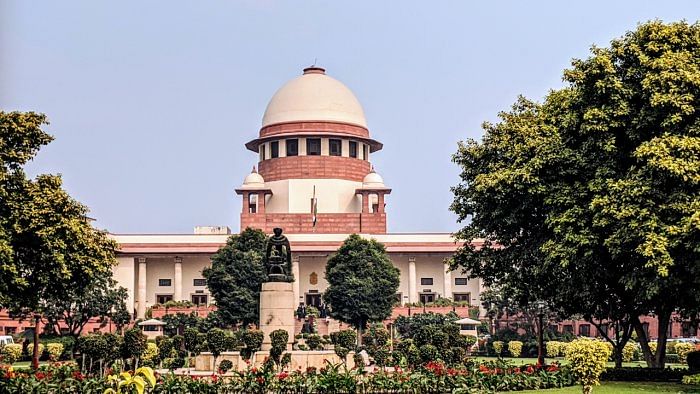
The Supreme Court was on Wednesday told that the Karnataka government’s order disallowing hijab “came as a death knell for students desirous to take secular education”.
Arguing before a bench of Justices Hemant Gupta and Sudhanshu Dhulia, senior advocate Huzefa Ahmadi, on behalf the petitioners, said there was no legitimate interest of the state in imposing ban.
“The GO (government order), even if it appears to be neutral, has to be struck down for running afoul of Article 14 of the Constitution if it targets a particular community,” Ahmadi said.
“Here is a community where certain students have been able to break stereotypes and go to schools albeit with a head scarf. The GO will strike a death knell for such students,” Ahmadi said, claiming that disallowing hijab would create barriers for education and fraternity.
The senior advocate also said it was in the state’s “legitimate interest” to promote diversity and not to standardise everything.
If someone says he won’t allow anyone to wear a hijab, this would be contrary to the “principle of fraternity in the preamble of the Constitution,” he said.
The counsellor also sought to raise the issue of dropouts of the students, referring to a report by the People’s Union for Civil Liberties (PUCL). He claimed after the High Court’s judgement of March 15, 17,000 students dropped out of schools.
According to him, Article 29(1) protected the cultural rights of the people which is “absolute”. “If this is not qualified under the right to practice the religion, it would certainly be a cultural right,” he said.
Earlier in the day, senior advocate Rajeev Dhavan, also arguing for petitioners, contended that so long as it was bona fide and prevalent, the practice of wearing hijab must be allowed, and there is no need to refer to the religious text.
“In fact in Vedas, they worshipped nature, there was no temple.
“No outside secular authority has any right to say it is not an essential practice, if it is said hijab is used in Karnataka,” he said.
Dhavan also asked what the justification was to say hijab couldn’t be allowed inside the classroom as millions of women across the world are wearing it.
“No justification has been offered by the HC (by upholding the ban), which also didn’t apply test of proportionality. Where is the violation of public order?” he said.
Dhavan also said one has “to apply additional degree of sensitivity” in such matters and “adopt the least restrictive approach”.
The GO probably targeted Muslim women and violated Article 14, and 15 and was, therefore, unconstitutional, he said.
